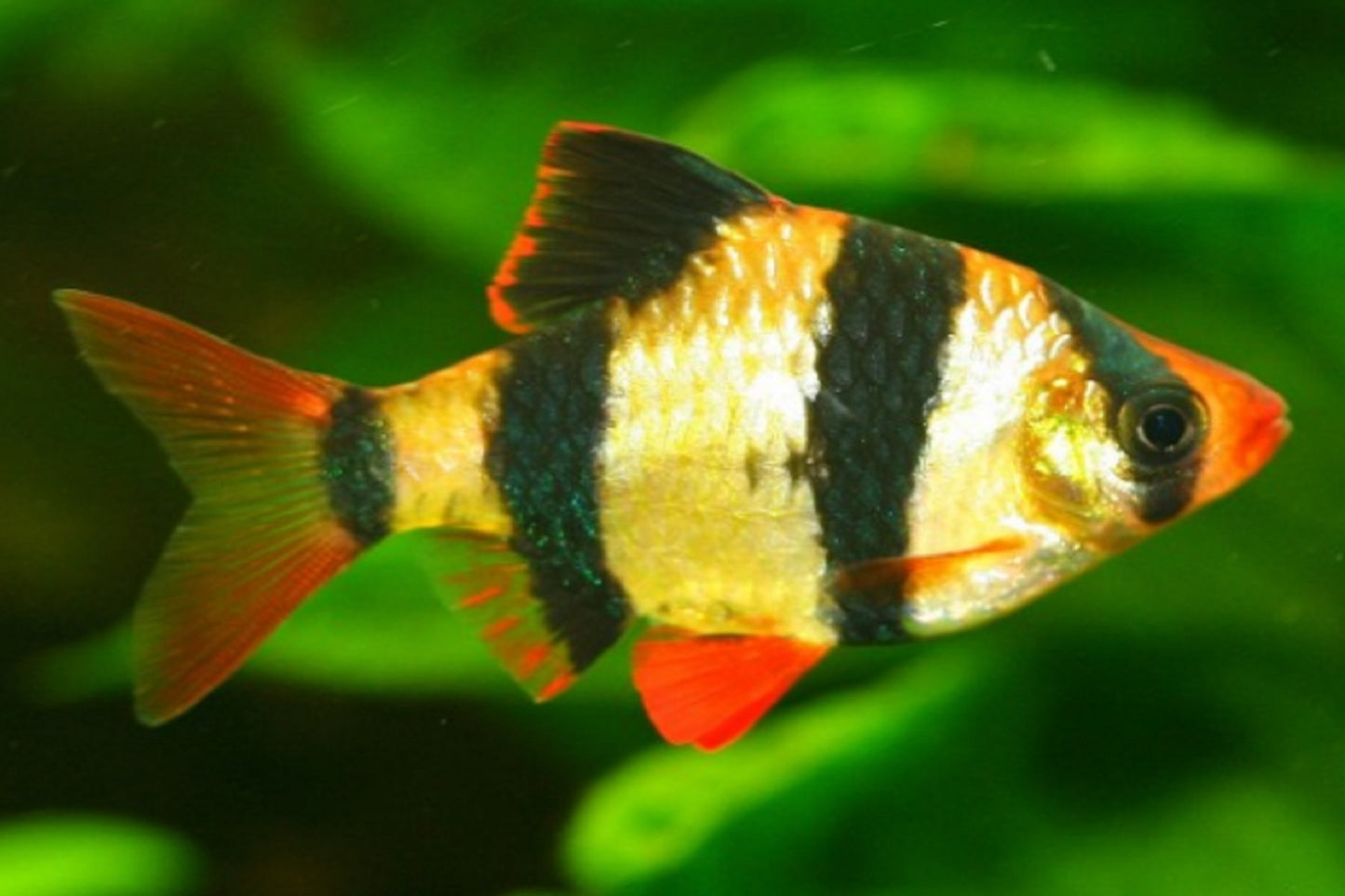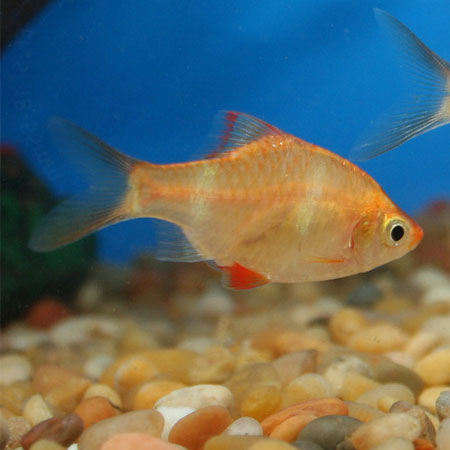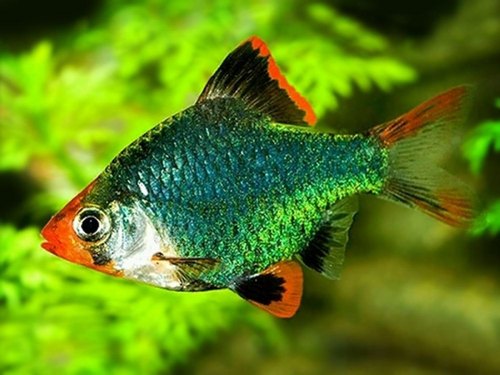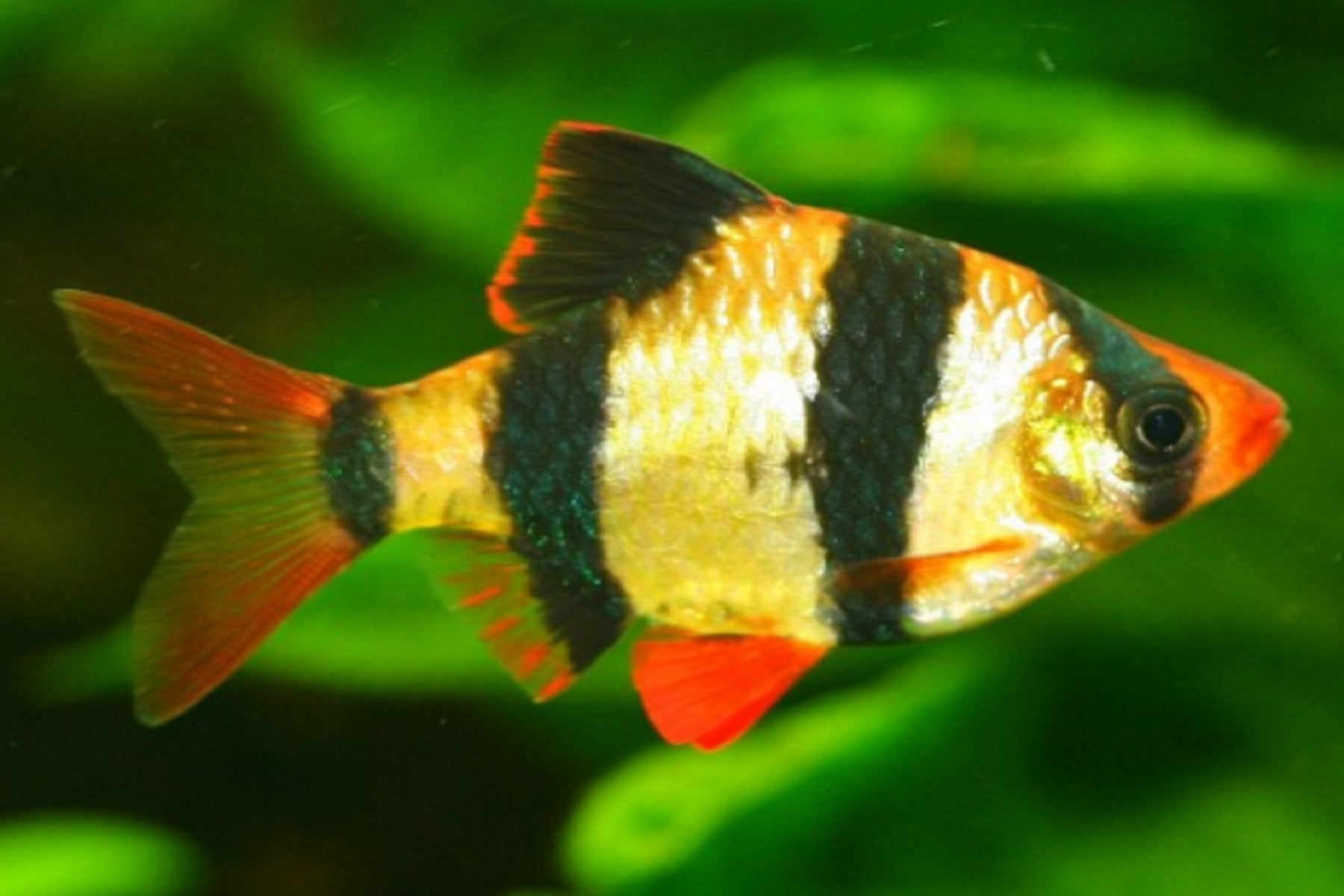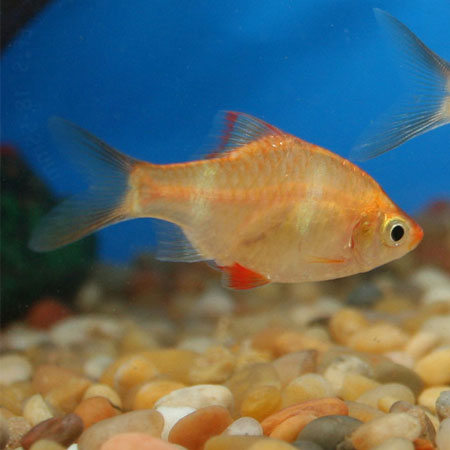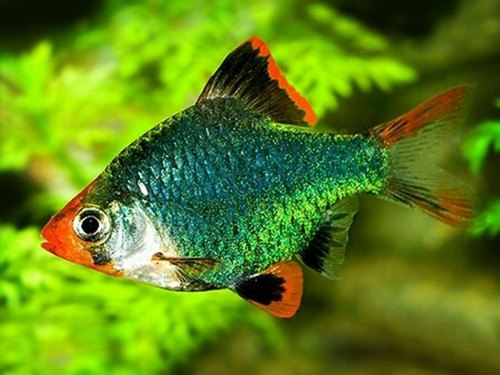Barb-Tiger
Barb-Tiger
check_circle Fast Shipping
check_circle Quality Products
check_circle Affordable Price
Reach out to us on ''available to order'' items via WhatsApp or email
Low stock: 1 left
Couldn't load pickup availability
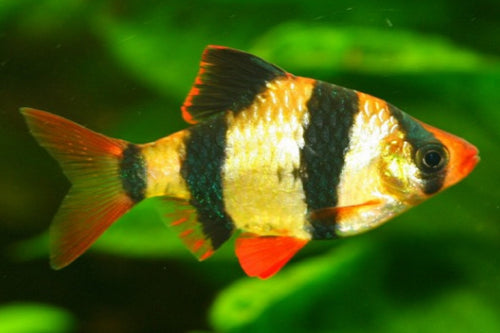
Barb-Tiger
package_2
Product Description
Product Description
All our fish, shrimp and corals are bagged with fresh oxygen as well as a heat pack in winter.
When ordering livestock please select the box size and add it to your cart for accurate overnight (1-2 days) shipping costs. A small box can take 1-2 bags and a medium box 6 bags. One bag fits max 10 small (1-3cm) fish or max 2 medium (3-5cm) fish or max 1 large (>5cm) fish.
ONE SPECIES PER BAG. Eg: One bag of 10 neon tetra.
Tiger Barb (Puntius tetrazona)
Description:
-
Appearance:
- Body: Small to medium-sized with a slender, streamlined shape.
- Color: Bright orange or gold body with distinctive vertical black stripes resembling a tiger's pattern. The colors can be more intense in males, especially during breeding.
- Fins: Fins are generally clear or lightly tinted, sometimes showing slight coloration.
- Size: Typically grows to about 2.5-3 inches (6.5-7.5 cm) in length.
-
Behavior:
- Activity: Highly active and energetic, often seen darting around the tank and exploring.
- Social Structure: Prefers to be kept in groups to exhibit natural schooling behavior, which helps reduce stress and enhances social interaction.
Care Requirements:
-
Tank Size:
- Minimum of 20 gallons (76 liters) for a small group; larger tanks are preferable for more space and to accommodate their active nature.
-
Water Parameters:
- Temperature: 72-78°F (22-26°C).
- pH: 6.0-7.5.
- Hardness: Soft to moderately hard water.
- Filtration: Good filtration is essential to maintain clean water, but avoid strong currents as they can stress the fish.
-
Tank Setup:
- Substrate: Soft substrate like sand or fine gravel is ideal.
- Aquascaping: Provide ample swimming space with a well-planted tank. Include plants, driftwood, and rocks to create hiding spots and visual barriers.
- Cover: A covered tank is advisable to prevent jumping, as Tiger Barbs can occasionally leap out of the water.
-
Diet:
- Primary Food: Omnivorous; feed a varied diet including high-quality pellets, flakes, and live or frozen foods such as brine shrimp, daphnia, and bloodworms.
- Supplemental Food: Offer occasional vegetable matter like spirulina or blanched vegetables to ensure balanced nutrition.
-
Behavioral Considerations:
- Compatibility: Generally peaceful but can be nippy towards fish with long fins or slow-moving species. Best kept with other small, active fish. Avoid aggressive or very large tank mates.
- Social Behavior: Thrives in schools of 6 or more. They may become stressed or less active if kept alone or in very small groups.
-
Tank Maintenance:
- Water Changes: Perform regular water changes (20-30% weekly) to maintain water quality and prevent the buildup of toxins.
- Cleaning: Regularly clean the tank and remove any uneaten food or waste to maintain a healthy environment.
-
Health Care:
- Observation: Monitor for signs of stress or illness, such as changes in behavior, loss of appetite, or visible symptoms like spots or lesions.
- Treatment: Ensure optimal water conditions and consult an aquarium professional if any health issues arise.
